How Long Does It Take for Probiotics to Work?
Are you considering adding a probiotic supplement to your routine? How long does it take for a probiotic to work?
How quickly you can benefit from probiotics depends on your health status, the diversity of your intestinal bacteria, and the formulation and potency of the probiotic supplement you plan to use.
Discover the signs that probiotics are working and learn how to maximize the health benefits of probiotic supplements.
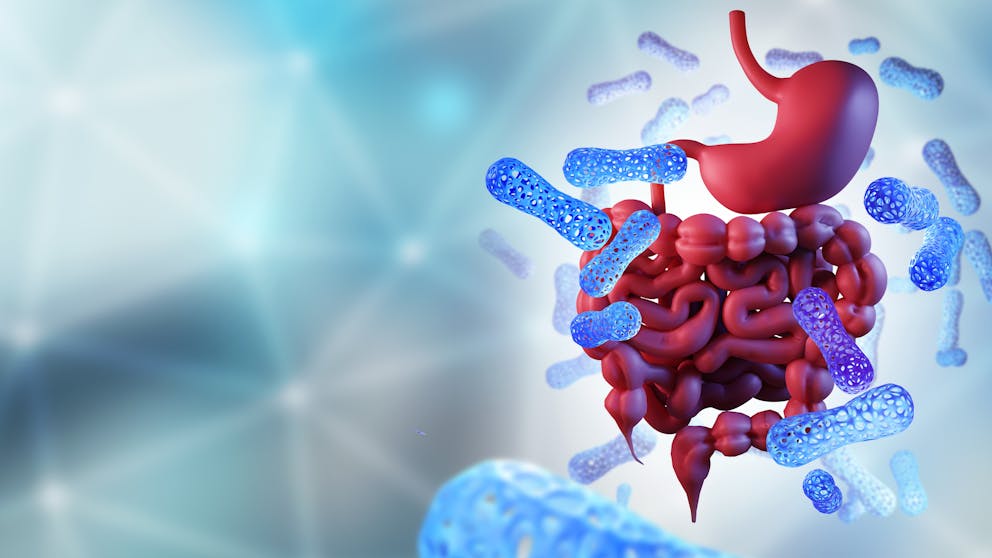
What are probiotics?
Probiotics are live microorganisms that naturally reside in the human digestive tract.
These beneficial bacteria, yeasts, and fungi form the gut microbiome, which is a synergistic community of probiotic microbes essential for maintaining a healthy digestive system.
A healthy gut microbiome also plays a crucial role in fortifying the immune system, supporting metabolic and hormonal balance, and enhancing nutrient absorption.
Maintaining a diverse intestinal gut flora helps prevent the overgrowth of potentially harmful
bacteria, which can lead to a wide range of health consequences.
Research published in ISRN Nutrition indicates that a lack of probiotic bacteria can weaken the immune system, diminish digestive health, lead to metabolic imbalances, and impact cognitive functions and mood regulation.
Here are common signs of an imbalanced microflora:
Digestive issues such as gas and bloating
Allergies and sensitivities
Inflammatory bowel disease (IBD)
Frequent infections
Poor skin health
Irregular bowel movements
Probiotics can be obtained from fermented foods, including sauerkraut, natto, miso, kimchi, yogurt, and kefir.
However, many people don’t consume enough probiotic foods to maintain a balanced gut flora, leaving them at risk of poor digestive functions and other health issues.
“Probiotic supplementation offers a safe and convenient way to obtain healthy bacteria,” explains Dr. Berg. “This helps maintain and restore a balanced microbiome and promotes the growth and proliferation of beneficial gut microbes.”
Watch the video below to learn how probiotics help promote a healthy liver.
How long does it take for a probiotic to work?
How long it takes for probiotics to work depends on several factors, including the specific strain of probiotics you are taking, your overall gut health, and the health condition being addressed.
Taking probiotics can help improve issues linked to pathogenic bacteria in the digestive system, such as infectious diarrhea, gastroenteritis, and food poisoning, within a few days.
It’s also well established that probiotics can manage and even prevent antibiotic-associated diarrhea and help restore gut bacteria diversity after antibiotic treatment, which typically kills both good and bad bacteria.
However, health issues linked to poor immune functions, inflammation, or a severe imbalance of gut bacteria may require considerably longer periods of probiotic treatment.
A study published in Medicine suggests that it can take up to two months of probiotic supplementation to improve symptoms of IBD, IBS, colitis, and chronic diarrhea.
Evidence published in Biomedicine and Pharmacotherapy reports similar effects of probiotic treatment in the management of certain autoimmune diseases.
The authors summarize that four weeks of probiotic treatment resulted in more balanced immune responses, which was associated with significant improvements in multiple sclerosis symptoms.
Increasingly, more evidence suggests that a balanced microbiome promotes metabolic health and that probiotics may be an effective therapeutic tool to manage insulin resistance, which is the primary cause of diabetes.
Research published in Diabetes and Metabolic Syndrome found that eight weeks of probiotic supplementation improved insulin resistance and blood sugar control in individuals with type 2 diabetes.

Signs your probiotics are working
Improvements in digestive problems, including acid reflux, belching, abdominal pain, diarrhea, or constipation, are signs that good bacteria positively impact your gut health.
Although it may seem counterintuitive, subtle gastrointestinal symptoms such as gas, bloating, and more frequent bowel movements can indicate that probiotics are working.
These mild side effects are a result of alterations in your microbiome and typically resolve with the continued use of probiotic supplementation.
Many people also report better moods and mental well-being and notice enhanced immune defenses.
A balanced gut microbiome is vital for immune support, and consistent probiotic intake can help lower the risk of catching the flu, the common cold, or other microbial infections such as thrush, herpes, and bacterial vaginosis.
In addition, you may experience fewer sensitivities to certain foods or chemicals and notice improvements in skin conditions such as acne, psoriasis, and eczema.

Signs your probiotics aren’t working
If your symptoms persist or worsen, or you don’t notice any improvements in digestive functions and overall health, it likely means that your probiotics aren’t working.
Here are common signs that you don’t benefit from the probiotics you are taking:
Unchanged bowel habits
Consistent digestive issues
Frequent infections
No changes in energy levels or moods
Persistent skin issues
Unchanged food or chemical sensitivities
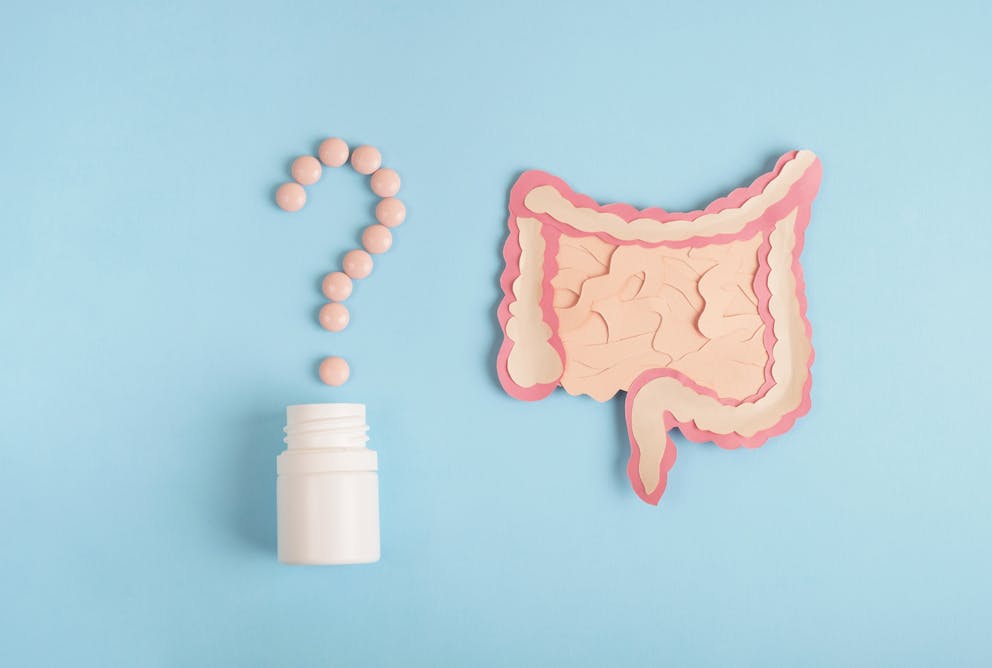
Potential reasons your probiotics aren’t working
Have you been taking a probiotic supplement for a while and noticed no improvement in your well-being? There are many potential reasons why your probiotics may not be working as expected.
Here are four factors that can influence the effectiveness of probiotics.
1. Wrong probiotic strain
Different probiotic strains have varying health benefits, and using the wrong strain for your particular health issue may explain why your symptoms don’t improve.
In addition, products that contain only one type of probiotic species may not be adequate to promote microbial diversity, which is needed to maintain gut health, strengthen immune functions, and support metabolic and hormonal balance.
2. Inadequate dosage
Not taking sufficient amounts of beneficial bacteria is the leading cause of probiotics not working.
“Some probiotic bacteria don’t survive the harsh acidity of stomach acid, and a low-potency probiotic product may not deliver adequate amounts of probiotics into the gut to confer any therapeutic effects,” explains Dr. Berg.
3. Unsuitable storage
Research published in Microbes indicates that poor storage techniques can affect the potency and effectiveness of probiotic supplements.
Some probiotics require refrigeration to preserve the viability of probiotic bacteria and maximize the product's effectiveness.
Exposing probiotics to heat, freezing temperatures, humidity, or direct sunlight can cause the degradation of beneficial microbes, greatly diminishing the health benefits of probiotics.
Probiotics are live microbes with limited longevity, and it's crucial to check the expiration date. Probiotic supplements that have expired are likely ineffective and may increase the risk of side effects.
4. Lifestyle factors
Factors such as chronic stress, lack of sleep, alcohol consumption, and a diet high in sugars and carbs can negatively impact gut health, which can make it challenging for beneficial microbes to grow and proliferate.
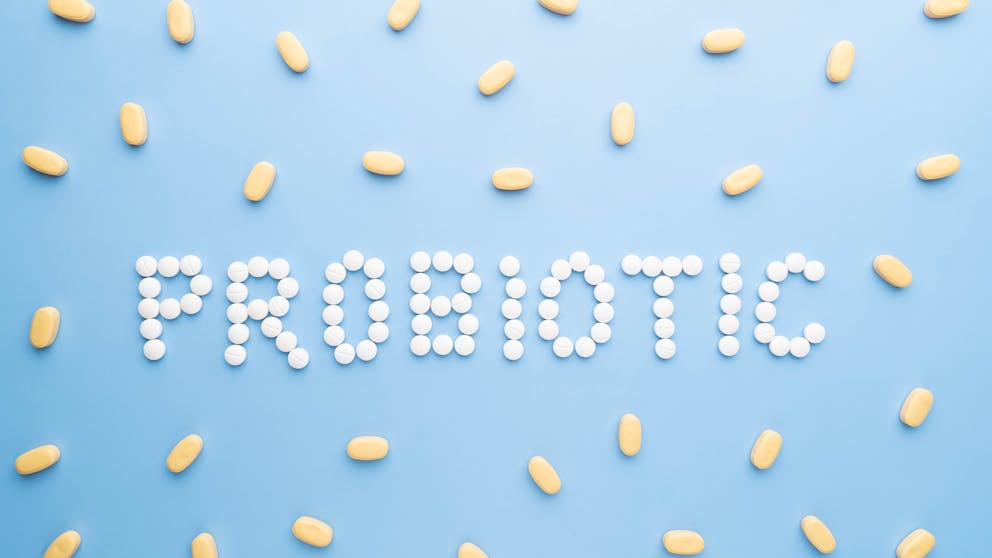
What to do when probiotics aren’t working
If a probiotic supplement isn’t working for you, explore supplements with different strains or combinations that may be more effective for your specific health needs.
It’s also important to take a high-quality probiotic supplement containing at least 60 billion colony-forming units (CFUs) per serving.
CFU indicates the number of viable probiotic bacteria, and supplements with less than 60 billion CFUs may not be potent enough to restore and maintain a diverse intestinal microflora.
In some cases, medical conditions can hinder the effectiveness of probiotic supplements, and it’s crucial to consult a healthcare provider if you suspect underlying health issues may be a reason why your probiotics aren’t working.
In addition, certain medications can be a potential cause for ineffective probiotics.
A study published in The British Journal of Biopharmacology suggests: “Antibiotics, anti‐inflammatories, gastric acid suppressants, and psychotropics have repeatedly been shown to alter the gut microbiota.”
If you have concerns about the potential interaction between prescription drugs and the effectiveness of probiotics, talk to your pharmacist or healthcare provider to discuss a suitable solution.

How to choose the right probiotic
When choosing a probiotic supplement, it's crucial to consider several key factors to maximize health benefits while minimizing the likelihood of side effects.
Opt for a probiotic supplement containing various well-researched probiotic strains, such as Lactobacillus, Bifidobacterium, and Streptococcus, to promote a diverse gut microbiome.
Choose a supplement that contains at least 60 billion CFUs per serving and is packaged in acid-resistant capsules to ensure the survival of beneficial bacteria through the digestive tract.
Some high-quality probiotic supplements contain prebiotic extracts that provide fuel and nutrients for beneficial gut microbes, which helps enhance the effectiveness of probiotics.
Check for certifications or seals of approval from organizations such as Good Manufacturing Practice (GMP), International Probiotics Association (IPA), or the United States Pharmacopeia (USP).
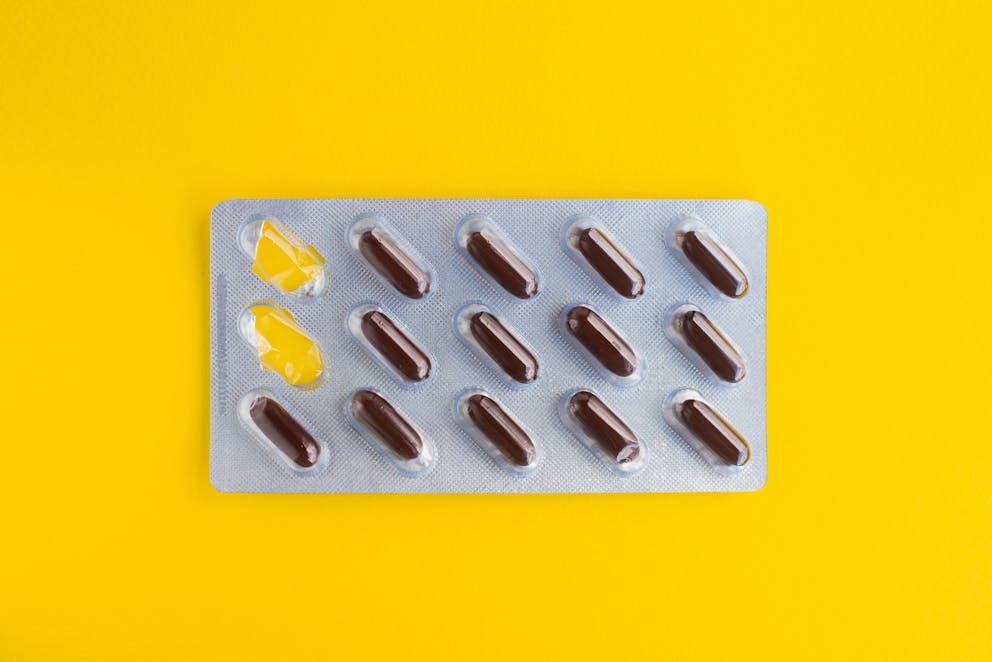
When to stop taking probiotics
If you started taking probiotics to address a specific health issue and those symptoms have significantly improved or resolved, you may decide to stop them.
In some cases, probiotics are taken for a specific period, especially after antibiotic use. Once the prescribed course is completed, probiotics are typically discontinued.
It’s also recommended to stop taking probiotics if you notice no health benefits after 2 to 3 months of consistent use or experience a worsening of your symptoms.
In addition, some individuals are allergic to ingredients in probiotic supplements. If you develop any signs of allergic reaction, such as hives, rashes, or breathing difficulties, consult a healthcare provider immediately and discontinue probiotics.
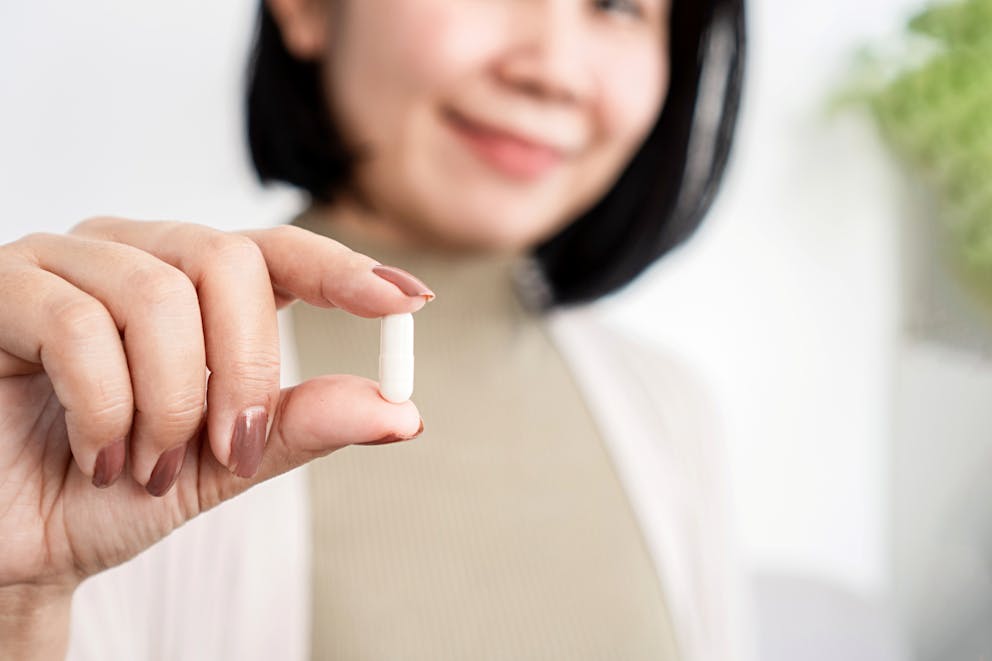
Key takeaways
How long it takes for probiotics to work depends on the formulation and potency of the supplement, the composition of your microflora, and the specific health issue you want to address.
Most people notice better gut health and regular bowel movements within a few days of taking probiotics.
However, it can take up to eight weeks of consistent probiotic use to manage symptoms of autoimmune diseases, metabolic imbalances, or gastrointestinal conditions, including IBS and IBD.
Additional Probiotics Resources
Probiotics for fungal acne
Probiotics for sugar cravings
FAQ
1. How do you know if a probiotic is working?
Improved digestive health, regular bowel movements, and enhanced moods and energy levels are common signs that probiotics are working.
In addition, many people notice stronger immune defenses, better skin health, and fewer sensitivities to certain foods or chemicals after taking probiotics for a few weeks.
2. Are probiotics effective immediately?
Some probiotic strains can have immediate benefits for gut health and have been effective in treating acute infectious diarrhoea, gastritis, and food poisoning.
However, it can take several weeks of probiotic use to manage chronic health conditions such as irritable bowel syndrome (IBS), inflammatory bowel disease (IBD), insulin resistance, and multiple sclerosis.
3. How long after taking probiotics will I notice a difference?
While most people report better gut health within a few days of starting probiotics, it can take considerably longer to notice improvements in autoimmune and inflammatory conditions such as IBD, IBS, eczema, and psoriasis.
4. What happens if you take probiotics every day?
Taking probiotics daily helps replenish beneficial bacteria, which promotes a diverse gut microbiome associated with strong immune defenses, digestive health, and metabolic balance.
5. How should you feel when taking probiotics?
While probiotics themselves don’t trigger any particular sensations, you should experience less digestive discomfort, better moods and mental well-being, strong immune defenses, and improved overall health when taking probiotics.
6. How long does it take for probiotics to help your digestion?
Most people notice improved gut health and better digestion within two weeks of taking probiotics.
7. What are the top signs that probiotics are working?
The top signs that probiotics are working include better digestive function, reduced bloating and gas, enhanced well-being, and improvements in the specific health concerns for which they were taken.
8. Is it possible to take too many probiotics?
Yes, taking too many probiotics is possible, which can increase the risk of side effects such as bloating, gas, abdominal discomfort, and other digestive issues.
To avoid overdosing on probiotics, it’s crucial to carefully follow the instructions of the probiotic product you are using.
9. Can I take two probiotics a day?
Whether you can take two probiotics a day depends on the potency and dose of the probiotic supplement, and it’s essential to follow the dosage recommendations of the product you plan to use.
10. Can probiotics work in a few hours?
While some individuals may experience subtle improvements in digestive symptoms within a few hours, long-term benefits usually develop with consistent use over an extended period.
Sources
https://www.sciencedirect.com/science/article/pii/S0753332222015840
https://www.sciencedirect.com/science/article/abs/pii/S1871402118301061
https://academic.oup.com/femsmicrobes/article/1/1/xtaa007/5957529
Previous blog
Do Probiotics Need to Be Refrigerated?
Popular
08/21/2024
55.7K views
02/23/2025
46.8K views
11/18/2024
281.2K views
03/18/2024
11/21/2022




